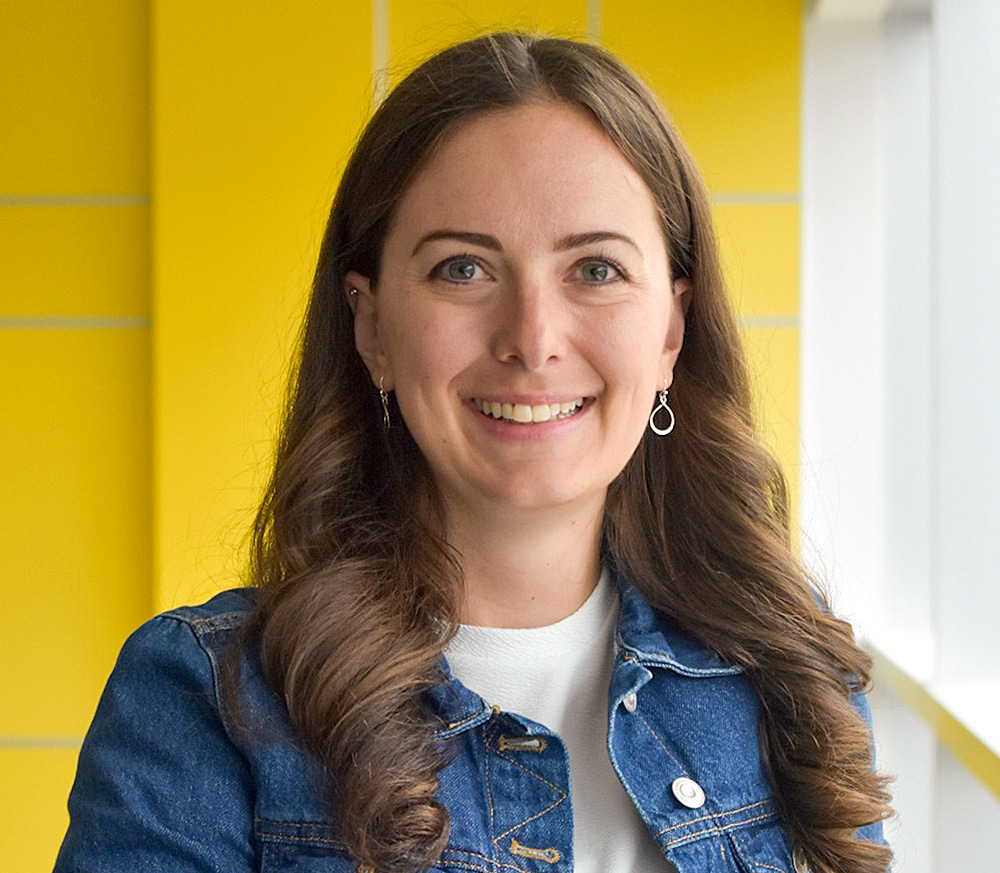Eating higher amounts of protein could help people with colorectal cancer keep crucial muscle mass while undergoing chemotherapy, new University of Alberta research shows.
In a pilot study, researchers asked patients with colorectal cancer to reach one of two daily levels of dietary protein. The results showed that even though the patients found it difficult to eat quite that much, about half of them maintained or even gained muscle mass by simply eating more protein.
“That’s a big achievement, given the muscle-wasting effects of cancer and chemotherapy,” says professor Carla Prado, a nutrition expert in the Faculty of Agricultural, Life & Environmental Sciences and principal investigator on the study.
Symptoms of colorectal cancer — the third most diagnosed and second leading cause of cancer-related deaths worldwide — and the treatment itself can cause poor appetite, nausea, diarrhea, constipation and altered taste. Up to half of people with this type of cancer have low muscle mass around the time they are diagnosed, research has shown. Along with that, cancer drives several metabolic changes in the body that cause breakdown of tissue, especially skeletal muscle.
Loss of muscle mass not only reduces everyday physical function and quality of life, but also increases the risk of complications during treatment and lowers survival rates.
The study, led by Katherine Ford to earn a PhD in nutrition and metabolism, focused on whether patients could feasibly increase their daily protein intake to two grams per kilogram of body weight — double the minimum oncology nutrition recommendation of one gram per kilogram.
Fifty patients with stages two to four colorectal cancer were divided into two groups and asked to consume protein either at the one gram per kilogram level or encouraged to reach twice that amount.
All of the participants received personalized nutrition counselling from a registered dietitian, who provided meal plans and advice on how to increase protein intake using meat, fish and dairy products, and protein supplements.
The 12-week study, run through the U of A’s Human Nutrition Research Unit, showed that on average, patients in the higher-protein group managed to increase their daily intake to 1.6 grams per kilogram. Despite not fully reaching the target, this increase in protein was associated with a positive trend in maintaining muscle mass.
Almost 60 per cent of patients in the higher-protein group kept or gained muscle mass compared with 44 per cent of patients in the lower-protein group.
“This suggests that even if it falls short of ambitious targets, increasing protein intake can benefit muscle health for patients with colorectal cancer as they undergo treatment,” says Ford. “Patients described to us how the focus on nutrition — something they had control over and could modify — contributed to their overall well-being.”
The study also showed preliminary findings that higher protein intake was linked with improved physical function, both overall and in the lower body, Ford notes.
However, although patients did eat more protein, reaching the doubled recommendation was challenging, the researchers found.
In a related study, the participants reported that the large amount of food they needed to eat, illness-related lack of appetite and changes to their routines all made it difficult to fully meet the dietary goal.
Though small in scope, the research lays the groundwork to test other methods for assessing the impact of protein intake on muscle mass and physical function in patients with cancer, Ford notes.
The findings also underscore the potential of using nutritional strategies more in cancer care, she adds.
“Typically, only patients with colorectal cancer who have an ostomy after surgery, or significant weight loss, are seen by a dietitian. But the potential is there to optimize nutritional status in patients with cancer.”
“The findings offer hope that with the right support, patients can improve their strength and their outcomes, even in the face of a challenging diagnosis,” adds Prado.
U of A co-authors on the study include Michael Sawyer, Sunita Ghosh, Sheryl Koski, Karen Mulder and Jacob Easaw from the Faculty of Medicine & Dentistry, and Iana R. Disi and Claire Trottier from the Faculty of Agricultural, Life & Environmental Sciences.
The study was funded by the Campus Alberta Innovation Program, the Canadian Institutes of Health Research and the Canada Foundation for Innovation’s John R. Evans Leaders Fund.
Carla Prado is a member of the Cancer Research Institute of Northern Alberta, the Women and Children’s Health Research Institute, the Alberta Diabetes Institute, the Alberta Transplant Institute and the Institute of Sensory Motor Rehabilitative Technology.


